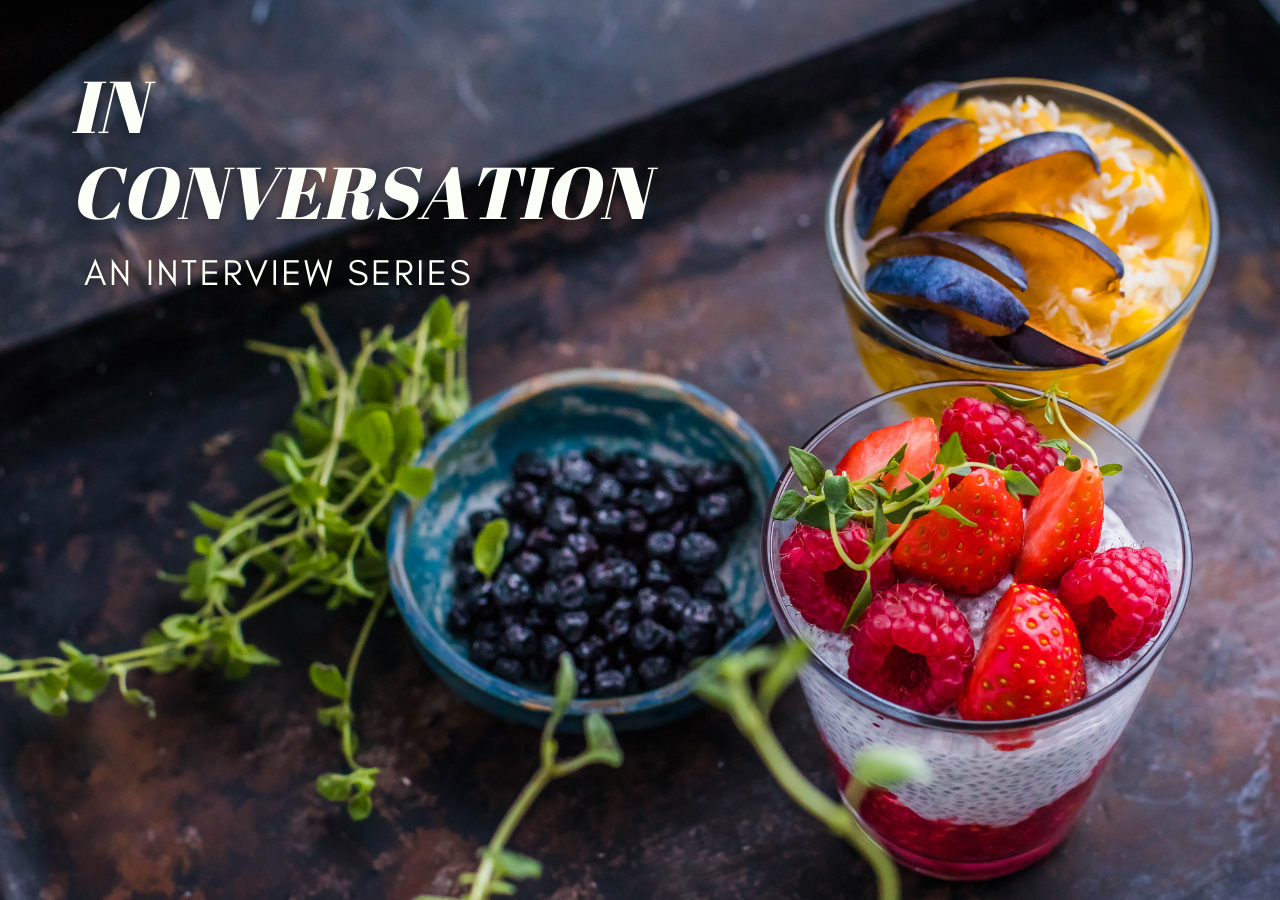For much of the past year, we have been focused on a virus — a communicable disease. However, as the world begins to emerge from the Covid-19 pandemic, when should we begin to return our attention to non-communicable diseases and other health risks?
The Covid-19 pandemic has created a significant shift in our circumstances and has undoubtedly meant that lifestyles have changed. Many people are less active, some may have resorted to comfort eating, while others might be doing more home cooking. In my opinion, this situation presents an opportunity to create healthy eating habits that benefit ourselves and our families in the long term.
We may have been trying to eat better for years and just not had the motivation to put it into practice — we can now give it our full attention. And as we begin to return to some sort of normality, we can make a commitment to ourselves to treat our body with more care and attention.
From a broad public health and nutrition perspective, have there been any positive outcomes from the Covid-19 pandemic?
As a spokesperson for the UK Government’s Better Health campaign aimed at South Asian communities, I’ve had first-hand experience of how the pandemic has impacted lifestyle habits. There has no doubt been an increase in consumer trends such as more snacking, stock-piling, cooking from scratch, baking, and the use of food delivery apps. Some people will have been prompted to improve their lifestyle whilst others may give in to temptations as a result of boredom.
A recent England-wide survey revealed that over 90% of South Asian adults have made healthy changes in 2021, with 7 in 10 saying they were motivated to make these changes due to coronavirus. The data also revealed the most common things people want to do differently are exercising more and eating more healthily. So I’m hopeful that this desire to make lifestyle changes will be accompanied by small but significant improvements in dietary habits and physical activity levels. It’s important to make changes gradually so that they can be maintained in the long term.
What are your three top tips to help people create a realistic nutrition strategy?
1. Be discerning
You may be lured into a new diet or an amazing way to improve your nutrition but I suggest checking the credentials of the author and the source of your information. Look out for RD or RNutr after the name of the author, or look for trustworthy sources and authoritative organisations. In the UK, dietitians are the only nutrition professionals to be regulated by law, and are governed by an ethical code to ensure that they always work to the highest standard. They will have RD after their name.
2. Be realistic
It may be tempting to boost your diet with lots of new eating strategies and expensive trendy ingredients, but you're more likely to maintain changes in the long term if they fit with your current lifestyle and food preferences. So take on a small step at a time and build from there.
3. Focus on your end goal
Think about your aim: Do you want to lose weight? Improve your immunity? Balance your blood glucose or cholesterol levels? Having clarity on your goal can make you better equipped to find solutions appropriate to your needs.
How can our diet and consumption affect our general physical and mental health, and what does it mean to eat mindfully?
A healthy varied diet can promote steady blood glucose levels, improve your mood, help support your immune function, and keep you energised. As well as thinking about what you eat, it’s helpful to be aware of how you eat. Mindful eating has been shown to lead to healthier eating habits and a more positive relationship with food.
Some strategies include:
-
Slow down your eating. Take smaller bites, chew well, and put cutlery down between mouthfuls. Finish your bite before you take the next.
-
Pay attention to the smell, taste, and texture of the food and stop when you feel comfortably full.
-
Portion out your snack and put the rest away. For example, if you’re having biscuits, serve one (or two) on a plate and put the rest of the pack hidden away out of sight.
-
Remove distractions such as TV or other screens while eating.
How might anyone intending to become vegetarian or vegan add more plant-based foods to their diet, in a healthy way?
Nutrition is an evolving science and we should respect the changes in recommendations when new knowledge comes to light. More and more evidence is pointing to the value of eating more plant-based foods. Studies have suggested that people on vegan diets tend to have a lower Body Mass Index (BMI), which can help to reduce the risks of long term conditions like type 2 diabetes and heart disease.
That doesn’t mean to say we should all become vegan. Meat, fish, eggs, and dairy are nutritious and important foods, but cutting down our portion sizes of animal-based foods and eating more plant-based foods such as whole grains, beans, lentils, fruit, vegetables, nuts, and seeds has been associated with good long-term health. This is relatively easy for communities where foods like vegetables, dhal, and beans are popular staples. A diet rich in whole plant-based foods can help to manage blood glucose levels in diabetes as whole foods like beans, lentils, nuts, and vegetables tend to have a low glycaemic index and be high in fibre. It can also help to manage blood cholesterol levels and help towards achieving your ‘5-a-day’ fruit and vegetable recommendations.
But this isn’t just a matter of swapping out steak for spinach. You need to ensure the nutrients commonly found in animal foods are still present in your plant-based diet. For example, dairy foods are great providers of nutrients like calcium and iodine so if you're opting to go dairy-free, make sure you check the labels and buy fortified dairy alternatives. The richest provider of omega-3 fatty acids is oily fish — and animal foods are the prime source of vitamin B12.
Having said that, a well-planned plant-based diet can provide a wide range of nutrients — using ‘Nutrient Bridges’ can help you achieve nutritional balance as well as flavour. These Nutrient Bridges are simple ways to add extra goodness to your meals and you can use them whether you are vegan or not. For example, adding walnuts to your salad gives you heart-healthy omega-3 fatty acids. Choosing tahini paste instead of coconut milk to thicken curries can add valuable calcium. And having a piece of fruit after a vegetarian meal can enhance your absorption of iron.
For individuals and families originating from South Asia, Central Asia, and the Middle East, how would you advise on avoiding the risks of diabetes, heart disease, and other adverse conditions?
Being overweight, especially around the middle, can make you more at risk of conditions such as type 2 diabetes and heart disease. South Asians are at an increased risk of these conditions and when we put on weight, we typically tend to gain weight around the stomach, which is more harmful than extra weight that is distributed throughout the body.
Five weight loss tips:
-
Watch your portion size. A good tip is to have the protein part of your meal, such as meat or chicken, no bigger than the palm of your hand. This will vary according to gender and age.
-
When it comes to carbohydrates or starchy foods, choose whole grains like brown basmati rice, roti made from coarse wholemeal flour, oats, or quinoa. Aim for a portion size roughly the size of your clenched fist.
-
Pile on the vegetables. Ideally, they should fill about half of your plate. The greater the variety of fruit and vegetables you eat, the wider the range of nutrients you’ll get. You’ll also be doing your gut a favour because eating a diverse range of vegetables provides food for your beneficial gut bacteria (70% of your immune cells are in your gut).
-
Build regular activity into your day.
-
Enjoy your food, take your time chewing, and really taste every mouthful.
---
Azmina Govindji RDN, Founder of Azmina Nutrition, is an award-winning dietitian, consultant nutritionist, international speaker and best-selling author of 20 books. Her latest peer-reviewed book, Vegan Savvy: The Expert’s Guide to Nutrition on a Plant-based Diet has just been released. Azmina is a media spokesperson for the British Dietetic Association as well as Public Health England’s Better Health Campaign. She was previously chief dietitian to Diabetes UK and a member of the British Heart Foundation’s Ethnic Advisory Board.









